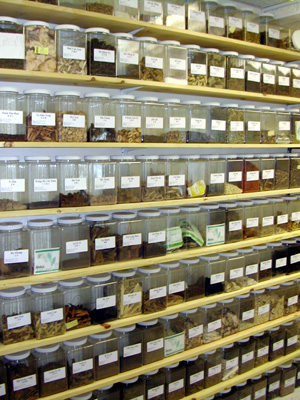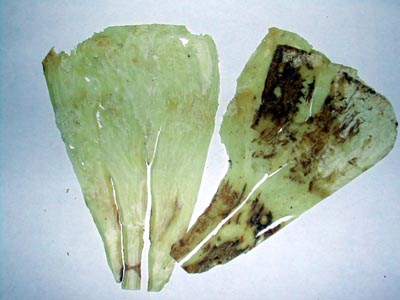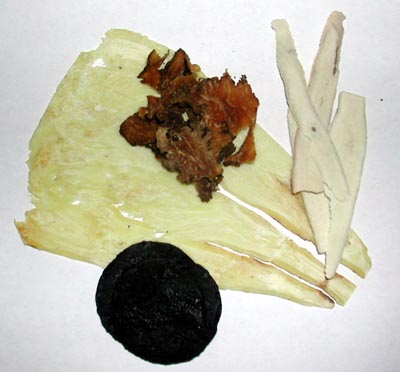
SERVICES
Acupuncture Treatment
Community Acupuncture
Herbal Medicine
Martial Arts Training
Lectures/Demos
SPECIALTIES
Infertility
Mental-Emotional
Pediatrics
© 2003-2019
 In addition to his training as an acupuncturist, John Kang also has a solid
background in Chinese Herbal Medicine. His main herbal pharmacy is at the
Richmond Acupuncture and Wellness and has one of the largest selections of builk herbs and patent and pill formulas.
The Traditional Asian Health Center has some patent formulas.
Herbal treatment, shares the same philosophical foundations as acupuncture; and like acupuncture, seeks to bring the body back into balance. The Chinese approach to herbal medicine in allopathic in nature: if the body is cold, we seek to warm it; if it is weak, we try to strengthen it; if qi has stagnated we attempt to move it. Herbal therapy therefore attempts to change the nature of the body, and not only treat specific symptoms. This stands in opposition to the practice of western pharmacology, where concentrated chemical structures are used to affect a specific chemical response in the body. Like acupuncture, herbal treatment does not follow the idea of “herb A treats symptom B.”
In addition to his training as an acupuncturist, John Kang also has a solid
background in Chinese Herbal Medicine. His main herbal pharmacy is at the
Richmond Acupuncture and Wellness and has one of the largest selections of builk herbs and patent and pill formulas.
The Traditional Asian Health Center has some patent formulas.
Herbal treatment, shares the same philosophical foundations as acupuncture; and like acupuncture, seeks to bring the body back into balance. The Chinese approach to herbal medicine in allopathic in nature: if the body is cold, we seek to warm it; if it is weak, we try to strengthen it; if qi has stagnated we attempt to move it. Herbal therapy therefore attempts to change the nature of the body, and not only treat specific symptoms. This stands in opposition to the practice of western pharmacology, where concentrated chemical structures are used to affect a specific chemical response in the body. Like acupuncture, herbal treatment does not follow the idea of “herb A treats symptom B.”
 For example, many people now know that Dong Quai (dang gui) can be used
to treat menstrual disorders. However, this herb does not directly
affect menstruation as much as it addresses blood volume and circulation.
According to TCM pharmacopoeia, Dang Gui helps to nourish blood and
promote circulation- the former function helps with scanty menstruation,
while the latter can help treat painful menstruation. However, the same
functions can treat anemia, fatigue, cold limbs, and many other disorders
related to blood.
For example, many people now know that Dong Quai (dang gui) can be used
to treat menstrual disorders. However, this herb does not directly
affect menstruation as much as it addresses blood volume and circulation.
According to TCM pharmacopoeia, Dang Gui helps to nourish blood and
promote circulation- the former function helps with scanty menstruation,
while the latter can help treat painful menstruation. However, the same
functions can treat anemia, fatigue, cold limbs, and many other disorders
related to blood.
Although there are over 10,000 herbs used in Chinese medicine, most herbal pharmacies stock around 300 common ones. Each is classified according to function, energetic temperature, and flavors. Generally speaking, flavors impart function: spicy herbs ascend, disperse, and invigorate; sour herbs descend and astringe; bitter herbs descend, cool, and dry. Sweet herbs ascend and nourish; salty herbs descend and dissolve masses; bland herbs descend promote urination. Parts of plants also work on specific parts of the body: flowers ascend and influence the head. Leaves, peels, and barks act on the body’s surface. Stems and vines affect channels and sinews. Roots reach deep into the body, affecting organs. Shells and minerals sink and calm the mind; while animal-based medicines tend to have strong nourishing functions.
 Herbs are rarely taken singly. Rather, they are combined in formulas-some are thousands of years old, while others are created to treat a specific patient. Herbs may be combined to mutually strengthen their effects, or to reduce negative aspects in each other. Formulas can be made as teas, or taken as pre-manufactured pills, powders, or liniments.
Herbs are rarely taken singly. Rather, they are combined in formulas-some are thousands of years old, while others are created to treat a specific patient. Herbs may be combined to mutually strengthen their effects, or to reduce negative aspects in each other. Formulas can be made as teas, or taken as pre-manufactured pills, powders, or liniments.
In conjunction with acupuncture and diet therapy herbs can have a strong, synergistic and beneficial effect on the body.
NOTE: The pharmacy is located at Richmond Acupuncture and Wellness in the West End.
Should I take herbs with acupuncture?
Herbs and acupuncture have a strong synergistic effect. That is, taking both together produces a better result than taking one or the other.
Can I take herbal formulas without acupuncture?
Yes. In China, many herbalists do not know acupuncture, and many
acupuncturists do not know herbs.
Are herbs dangerous?
Herbs present more of a danger than acupuncture. While acupuncture
generally has a homeostatic effect (that is, it will generally not
adversely affect the body if a needle is placed somewhere it is not
needed), herbs will affect your body according to its function. That is,
if your body is cold in nature, an acupuncture point that is cooling will
not make you colder. A cooling herb, however, will.
What do they taste like?
Generally speaking, most herbal formulas are not exactly pleasant.
Which is better, teas or pills?
In most cases, teas have a stronger effect. Further, they can be modified
to suit an individual, whereas pills have fixed ingredients and dosages.
Do they contain heavy metals or other toxic substances?
Our herbs are imported from China via California, the state with the
strictest codes for heavy metals and other toxins. Each batch is carefully
screened before being released to the general public.